Filter by

Guardians of finance :making regulators work for us
"The recent financial crisis was an accident, a 'perfect storm' fueled by an unforeseeable confluence of events that unfortunately combined to bring down the global financial systems. And policy makers? They did everything they could, given their limited authority. It was all a terrible, unavoidable accident. Or at least this is the story told and retold by a chorus of luminaries that includes …
- Edition
- -
- ISBN/ISSN
- 9780262301527
- Collation
- 1 online resource (xiii, 280 pages)
- Series Title
- -
- Call Number
- -
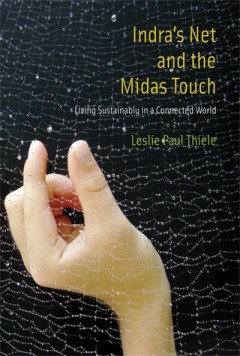
Indra's net and the Midas touch :living sustainably in a connected world
An exploration of the impact of unintended consequences in an interdependent world and of the opportunities for creativity and community.OCLC-licensed vendor bibliographic record.
- Edition
- -
- ISBN/ISSN
- 9780262298858
- Collation
- 1 online resource (ix, 330 pages) :illustrations
- Series Title
- -
- Call Number
- -
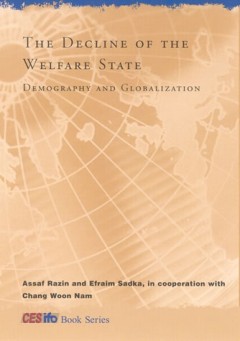
The Decline of the Welfare State: Demography and Globalization
An analysis of the welfare state from a political economy perspective that examines the effects of aging populations, migration, and globalization on industrialized economies.In The Decline of the Welfare State, Assaf Razin and Efraim Sadka use a political economy framework to analyze the effects of aging populations, migration, and globalization on the deteriorating system of financing welfare…
- Edition
- -
- ISBN/ISSN
- 9780262282147
- Collation
- 1 online resource (viii, 133 pages) :illustrations.
- Series Title
- -
- Call Number
- -
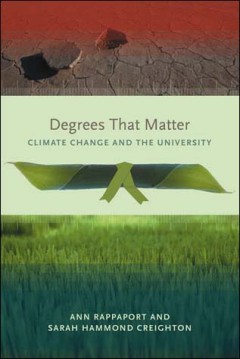
Degrees that matter: climate change and the university
Explains how members of college and university communities can take action on climate change: strategies, projects, and lessons in how to motivate complex organizations to make changes.OCLC-licensed vendor bibliographic record.
- Edition
- -
- ISBN/ISSN
- 9780262282086
- Collation
- 1 online resource (xviii, 372 pages) :illustrations.
- Series Title
- -
- Call Number
- -
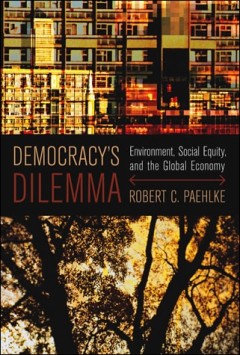
Democracy's dilemma: environment, social equity, and the global economy
A call for a balancing of economic, environmental, and social concerns in the age of global economic integration.The realities of global economic integration are far more complex than many of its supporters or detractors acknowledge. One consequence of simplistic thinking about globalization, claims Robert Paehlke, is that we tend to focus on economic prosperity to the neglect of such other imp…
- Edition
- -
- ISBN/ISSN
- 9780262281164
- Collation
- 1 online resource (ix, 306 pages)
- Series Title
- -
- Call Number
- -
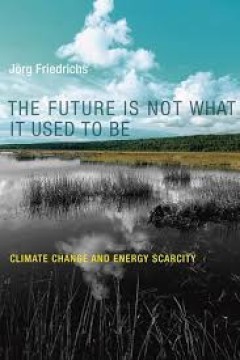
The future is not what it used to be : climate change and energy scarcity
"The future is not what it used to be because we can no longer rely on the comforting assumption that it will resemble the past. Past abundance of fuel, for example, does not imply unending abundance. Infinite growth on a finite planet is not possible. In this book, J?org Friedrichs argues that industrial society itself is transitory, and he examines the prospects for our civilization's coming …
- Edition
- -
- ISBN/ISSN
- 9780262316620
- Collation
- 1 online resource
- Series Title
- -
- Call Number
- -
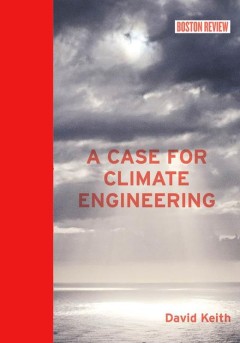
A case for climate engineering
A leading scientist argues that we must consider deploying climate engineering technology to slow the pace of global warming."Climate engineering -- which could slow the pace of global warming by injecting reflective particles into the upper atmosphere -- has emerged in recent years as an extremely controversial technology. And for good reason: it carries unknown risks and it may undermine comm…
- Edition
- -
- ISBN/ISSN
- 9781461943839
- Collation
- 1 online resource (xxiii, 194 pages).
- Series Title
- -
- Call Number
- -
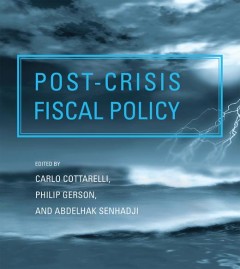
Post-crisis fiscal policy
Fiscal policy makers have faced an extraordinarily challenging environment over the last few years. At the outset of the global financial crisis, the International Monetary Fund (IMF) for the first time advocated a fiscal expansion across all countries able to afford it, a seeming departure from the long-held consensus among economists that monetary policy rather than fiscal policy was the appr…
- Edition
- -
- ISBN/ISSN
- 9780262324113
- Collation
- 1 online resource (vii, 562 pages) :illustrations
- Series Title
- -
- Call Number
- -
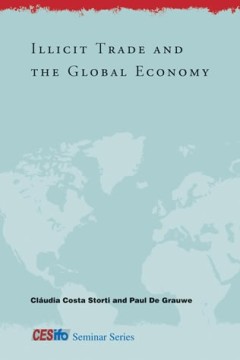
Illicit Trade and the Global Economy
Economists explore the relationship between expanding international trade and the parallel growth in illicit trade, including illegal drugs, smuggling, and organized crime.OCLC-licensed vendor bibliographic record.
- Edition
- -
- ISBN/ISSN
- 0262298686
- Collation
- 1 online resource (x, 266 pages) :illustrations.
- Series Title
- -
- Call Number
- -
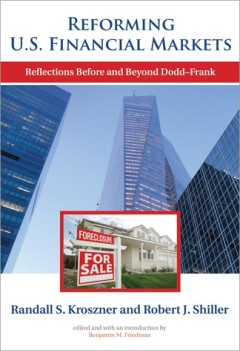
Reforming U.S. financial markets :reflections before and beyond Dodd-Frank
Papers and discussions presented at the fifth Alvin Hansen Symposium on Public Policy, held at Harvard University on April 30, 2009."Over the last few years, the financial sector has experienced its worst crisis since the 1930s. The collapse of major firms, the decline in asset values, the interruption of credit flows, the loss of confidence in firms and credit market instruments, the intervent…
- Edition
- -
- ISBN/ISSN
- 9780262295956
- Collation
- 1 online resource (xvii, 152 pages)
- Series Title
- -
- Call Number
- -
 Computer Science, Information & General Works
Computer Science, Information & General Works  Philosophy & Psychology
Philosophy & Psychology  Religion
Religion  Social Sciences
Social Sciences  Language
Language  Pure Science
Pure Science  Applied Sciences
Applied Sciences  Art & Recreation
Art & Recreation  Literature
Literature  History & Geography
History & Geography